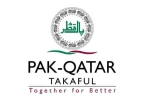Pakistan needs to urgently adopt global water stewardship standards in the aftermath of unprecedented monsoon floods.
“The government and corporate sector urgently need to adopt global water stewardship standards and invest in sustainable water infrastructure and technologies,” said experts while speaking at a roundtable conference on water stewardship organized by the Pakistan Business Council (PBC) in collaboration with Sindh Engro Coal Mining Company (SECMC).
The experts stressed the urgency for industries and regulators to align with global frameworks such as the Alliance for Water Stewardship (AWS), a UN-backed platform that promotes responsible and sustainable freshwater management across the globe.
Imran Aslam, GM HSSE at SECMC, emphasized the need for data-driven planning, proactive risk management and inclusive stakeholder engagement to institutionalize water stewardship.
Based on learnings from SECMC’s recent AWS Gold certification, a first for any mining company globally, he called upon corporations to invest in advanced infrastructure, such as Sewage Treatment Plants (STPs) to reuse water, while also ensuring full transparency and regulatory compliance.
He pointed out SECMC’s successful initiatives, including bio-saline agriculture, 26 Reverse Osmosis plants, and over 550 sanitation units in Thar Block II, as scalable models that can be replicated nationwide.
Read More: Pakistan’s First Flora Conservation Station Launched in Thar to Protect Biodiversity
Nazish Shekha, Head of Initiative at CERB – PBC, stressed the importance of transparency through regular disclosure of water performance and stewardship commitments, noting that this would ensure accountability and create long-term benefits for the country.
Sanaa Zulfikar Causer, Director External Relations at Hisaar Foundation, highlighted that Pakistan is now moving from “water-stressed” to “water-scarce” due to high population growth and up to 90 percent use of freshwater in agriculture.
With per capita water availability now below 1,000 m³, she pointed out Pakistan’s challenges of inadequate storage, unchecked groundwater use, irrational pricing and inefficient consumption.
The participants concluded that sustainable water use must be socially equitable, environmentally responsible and economically viable.
They called for a multi-pronged approach to address the country’s water challenges, including watershed-level risk assessments, greater investment in water efficiency and treatment technologies, and stronger collaboration between communities, government and industry.






